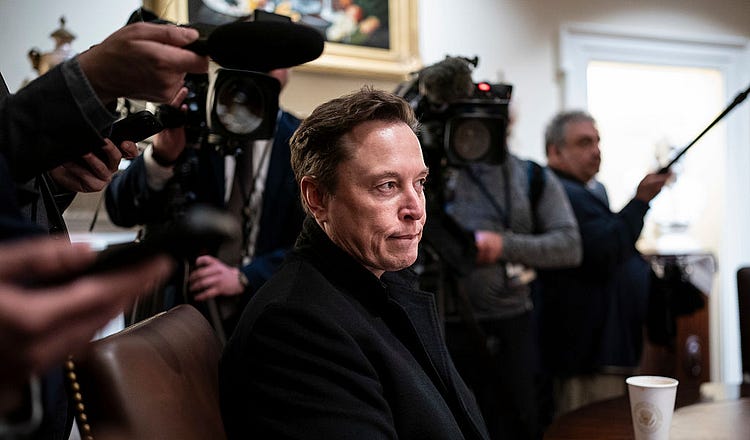Is DOGE Dead?

“Musk made himself a total pariah,” Steve Bannon told The Free Press. (Jabin Botsford/The Washington Post via Getty Images)
The world’s richest man is back to ‘spending 24/7’ at his old jobs, but left behind devotees who are accumulating power and influence.
--:--
--:--
Upgrade to Listen
5 mins
Produced by ElevenLabs using AI narration
199
Elon Musk was back at SpaceX this week, planning to update the world about the company’s plans “to make life multiplanetary” right after launching the latest test flight of its Starship rocket. The update was canceled after the rocket spun out of control, but at least it didn’t explode after liftoff like SpaceX’s last two flights. Notwithstanding the two failed launches, Musk is back to doing what he does best.
But now that the world’s richest man has returned to a mission he had long before Donald Trump tapped him to lead DOGE, what will become of the bureaucracy-hunting, cost-cutting attack dog that Musk unleashed on the federal government?
Continue Reading The Free Press
To support our journalism, and unlock all of our investigative stories and provocative commentary about the world as it actually is, subscribe below.
$8.33/month
Billed as $100 yearly
$10/month
Billed as $10 monthly
Already have an account?
Sign In

